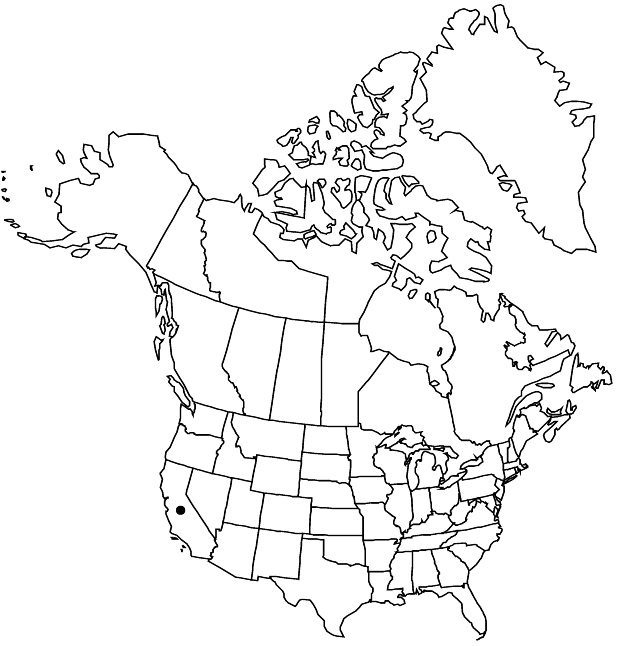Arctostaphylos nissenana
Proc. Biol. Soc. Wash. 31: 102, plates 4, 5. 1918 ,.
Shrubs, erect or mound-forming, 0.2–1.5 m; burl absent; bark on older stems persistent, gray, shredded; twigs short soft-hairy. Leaves: petiole 1–3 mm; blade gray-glaucous, dull, elliptic to oblong-elliptic, 1–2 × 0.8–1.5 cm, base cuneate to rounded, margins entire, plane, surfaces smooth, sparsely appressed-puberulent, glabrescent. Inflorescences racemes, simple or 1-branched; immature inflorescence pendent, (framed by leafy bracts), axis 0.2–0.5 cm, 1+ mm diam., short soft-hairy; bracts not appressed, narrowly leaflike, lanceolate, 3–5 mm, apex acute, surfaces glabrous or sparsely hairy. Pedicels 5–7 mm, sparsely hairy or glabrous. Flowers: corolla white, urceolate; ovary white-hairy. Fruits subglobose, 3–4 mm diam., glabrous. Stones distinct. 2n = 26.
Phenology: Flowering winter–early spring.
Habitat: Shallow shale soils in chaparral and foothill woodlands
Elevation: 500-1200 m
Discussion
Of conservation concern.
Arctostaphylos nissenana occurs in the western Sierra Nevada in El Dorado, Placer, and Tuolumne counties.
Selected References
None.
